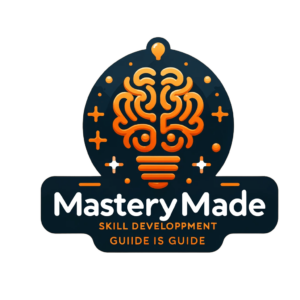Today we’re diving into the transformative world of leadership development programs. In our fast-evolving professional landscape, nurturing essential leadership skills has become more crucial than ever. These programs aren’t just about climbing the corporate ladder; they’re about empowering professionals with the finesse and expertise to lead with confidence and vision. As guides in the realm of leadership training, we understand how dynamic and multifaceted the journey to effective leadership can be. Let’s embark on this exploration together, equipping you with the tools to not only meet but exceed the demands of modern leadership.
Key Takeaways
- Unpacking the essentials of leadership development programs for shaping the leaders of tomorrow.
- Exploring how strategic leadership training can enhance vital leadership skills within diverse environments.
- Understanding the pivotal role these programs play in personal and organizational growth trajectories.
- Identifying the synergistic relationship between leadership development and workplace success.
- Emphasizing a culture of continuous learning as the backbone of effective leadership.
Understanding the Importance of Leadership Development
As we delve into the transformative world of leadership, it has become increasingly clear that the conventional blueprint of command and control has made way for more nuanced and dynamic leadership strategies. The essence of contemporary leadership lies not in authoritative power but in the ability to influence and inspire. In this space, leadership coaching takes center stage, serving as the crucible for emerging leadership techniques.
Defining Leadership in Today’s World
Today’s leadership extends beyond the confines of the boardroom. With the emphasis on collaboration, innovation, and adaptability, the modern leader is expected to guide with empathy and to forge connections that inspire action. Thus, leadership techniques have evolved to incorporate these traits, ensuring that leaders are equipped to handle the complexities of the increasingly interconnected and fast-paced global market.
The Impact of Effective Leadership on Organizational Success
The crux of organizational achievement lies in the effectiveness of its leaders. An investment in leadership strategies is an investment in the company’s future. Effective leadership fosters an environment where employee engagement blossoms, productivity thrives, and retention rates soar. It’s about creating a culture where the collective goal of the organization aligns with the personal ambitions of its individuals, heralding a cascade of successes and innovations.
The Core Components of Leadership Development Programs
Embarking on a journey to enhance leadership capabilities demands a firm understanding of the core components integral to any high-quality leadership development program. At the heart of these programs are fundamental leadership skills and an array of training methods that pave the way toward effective leadership.
Essential Leadership Skills and How to Cultivate Them
In our quest to forge influential leaders, we recognize a set of essential leadership abilities that stand as non-negotiable requisites for success. These skills include strategic thinking, effective communication, and the capacity to inspire and motivate teams. Cultivating these competences is not merely about knowledge acquisition but about making a transformative leap in one’s approach to leadership.
This transformation often begins in leadership seminars, where individuals are immersed in real-world scenarios that challenge their current mindset and drive them to adopt new, more effective ways of leading. In parallel, leadership workshops offer hands-on experiences that solidify these new strategies into tangible actions. The emphasis is on interactive learning that encourages participants to practice newly acquired techniques in a supportive environment.
Leadership Training Methods and Best Practices
The diligent selection of training methods is critical for the development of adept leaders. Here, we present a compilation of best practices gleaned from industry-leading programs:
- Adopting a learner-centric approach, which tailors the experience to the unique needs of each participant.
- Incorporating a blend of theoretical knowledge with practical exercises.
- Ensuring continuous learning through follow-up activities and ongoing support.
As facilitators of such programs, we tirelessly seek out the most advanced and effective methods to bolster leadership abilities.
When evaluating the impact of various teaching methods, a comparison between seminars and workshops reveals insightful contrasts:
| Leadership Seminars | Leadership Workshops |
|---|---|
| Emphasis on theory and big-picture concepts | Focus on practical, hands-on experiences |
| Expert speakers and thought-leaders share insights | Interactive group activities facilitate skill application |
| Suitable for larger audiences seeking inspirational discussions | Designed for smaller groups focused on personalized learning |
| Often used to kickstart the leadership development journey | Effectively used to deepen understanding and refine skills |
Within this table, we bear witness to the distinctive strengths of each training style. Seminars are brilliant for casting a wide inspirational net, while workshops excel in fostering an intimate environment for personal development. Together, they form the dual pillars supporting the architecture of exemplary leadership training programs.
Innovative Leadership Techniques in Modern Training Programs
In our collective journey to shape leaders for tomorrow, we’re proud to be at the forefront of incorporating innovative leadership techniques into our leadership courses and leadership development programs. It’s crucial for today’s leadership training to transcend traditional boundaries and embrace the dynamic shifts in the business landscape. Let’s take a dive into how these modern programs are successfully leveraging the latest trends and technologies to create transformative leader experiences.
Understanding the vast potential of flexible learning platforms, we integrate comprehensive online modules with real-world problem-solving scenarios. This hybrid approach not only enhances learning accessibility but also equips leaders with the versatility to respond to an array of business challenges efficiently.
“Creating visionary leaders requires not just the transfer of knowledge, but an evolutionary approach to learning itself. It’s about stimulating the mind to think beyond the horizon.”
By harnessing the power of digital simulation tools and virtual reality, participants in our leadership courses are immersed in complex decision-making environments. This exposes them to situations that demand strategic thinking, agility, and decisive action – attributes that are invaluable in today’s fast-paced world.
| Technique | Application in Leadership Development | Outcome |
|---|---|---|
| Interactive Learning Platforms | Facilitates real-time collaboration and problem-solving among participants. | Enhances communication skills and team dynamics. |
| VR Leadership Scenarios | Immerses leaders in high-pressure, realistic management challenges. | Improves critical thinking and crisis management abilities. |
| Data-Driven Decision-Making Modules | Integrates big data analytics into strategic decision exercises. | Develops competence in data interpretation and evidence-based leadership. |
| Global Leadership Forums | Connects leaders from different sectors worldwide to discuss emerging trends. | Expands international perspective and cultivates a global network. |
Moreover, the advent of AI and machine learning has transformed how leadership potentials are identified and nurtured. Tailored content delivery, based on individual learning patterns and progression, ensures that each course participant receives a personalized learning experience, ultimately leading to more profound developmental outcomes.
As we continuously seek out and trial advanced methods and technologies, our leadership development programs evolve to stay relevant and impactful. We remain committed to empowering leaders not just for today’s challenges but for a future that holds endless possibilities.
Leadership Development Programs: Customization is Key
In today’s fast-paced business world, the one-size-fits-all approach to leadership development is quickly becoming obsolete. We recognize the profound impact that tailored leadership training and strategies have on the growth trajectory of individuals. Customized programs not only offer a personalized touch but also ensure that participants receive relevant guidance that aligns with their unique career paths and objectives.
Assessing Individual Leadership Needs and Goals
Each aspiring leader possesses a distinct set of skills and areas for improvement. This is where leadership coaching plays a pivotal role, focusing on an individual’s strengths and weaknesses to formulate a development plan that caters to specific leadership goals. It begins with a thorough assessment, which may include interviews, surveys, and feedback from peers and managers to create a comprehensive picture of leadership competencies and areas that require enhancement.

Creating a Personalized Leadership Development Plan
Once the initial assessment is completed, the next step involves crafting a leadership development plan that aligns with the individual’s unique needs. This plan acts as a roadmap, detailing the strategic steps necessary for reaching their leadership potential. Our coaching approach involves setting clear, actionable goals and providing the resources and support needed to achieve them.
| Leadership Training Element | Personalized Approach | Expected Outcome |
|---|---|---|
| Communication Skills | Targeted exercises based on individual communication style | Enhanced interpersonal and public speaking abilities |
| Strategic Thinking | Case studies selected based on the leader’s industry | Improved decision-making and problem-solving skills |
| Team Management | Custom simulations reflecting team dynamics | Strengthened team-building and conflict resolution expertise |
| Innovation and Change Management | Personal innovation projects that impact current company processes | Ability to effectively lead and manage organizational change |
The ultimate goal of customized leadership strategies is not just to fill gaps in knowledge or skills but to empower leaders to inspire and influence their teams and organizations positively. Through this attentiveness to individual growth, leadership coaching forges a path for enduring success.
Exploring Different Leadership Training Formats
In today’s professional landscape, lifelong learning is not just an asset; it’s a necessity, especially when it comes to leadership development. We understand that choosing the right training format can be as crucial as the content itself. Hence, we take a deep dive into the myriad of options available for those seeking to expand their leadership prowess.
The Benefits of Leadership Workshops and Seminars
There’s something profoundly impactful about the collective energy in leadership workshops and seminars. The dynamic interactions, real-time feedback, and the opportunity to connect with peers and experts in the field provide a unique atmosphere conducive to profound learning experiences. The structured environment of a seminar or workshop, with face-to-face mentoring, is invaluable for personal growth and networking.
Online Leadership Courses Versus In-Person Training
In contrast, online leadership courses offer incredible flexibility and customization. They cater to various learning styles and allow participants to engage at their own pace. In an ever-connected world, the digital boundaries are expanding, and so is the reach of online leadership education. Whether it’s a busy professional seeking to upskill on-the-go, or an organization looking to train employees across the globe, online courses enable leadership development without the confines of geography.
| Format | Benefits | Best For |
|---|---|---|
| Leadership Workshops | Interactive hands-on experience, real-time collaboration, networking opportunities | Those who prefer immersive face-to-face learning and immediate feedback |
| Leadership Seminars | Intensive learning, access to leading industry experts, fosters a sense of community | Professionals looking to deep-dive into specific topics and expand their professional circle |
| Online Leadership Courses | Flexible learning, wide range of options, accessible from anywhere | Self-paced learners and organizations with a distributed workforce |
Ultimately, whether one opts for the immersive environment of leadership workshops, the intensive focus of seminars, or the unparalleled accessibility of online courses, the key is to align these training formats with individual learning preferences and career objectives. We’re here to help you navigate these choices and embark on a journey of leadership transformation.
Real-world Outcomes: Success Stories from Leadership Development
Leadership development programs have been pivotal in shaping the careers of many individuals, significantly enhancing their leadership abilities. We have witnessed a plethora of success stories where dedicated professionals have leveraged these programs to climb the corporate ladder and drive meaningful change within their organizations. Moreover, these programs have not only been instrumental in personal growth, but they have also positively influenced the bottom lines of businesses globally.

Take, for instance, the transformational journey of a middle manager at a renowned tech company who took part in a comprehensive leadership development program. After completing the course, which focused on strategic thinking and effective communication, the individual managed to significantly increase their team’s productivity and overall satisfaction, which in turn boosted the department’s performance.
| Before Leadership Program | After Leadership Program |
|---|---|
| Team satisfaction rate at 65% | Team satisfaction rate at 85% |
| Average project completion time of 8 weeks | Average project completion time of 6 weeks |
| Innovation initiatives per quarter: 1 | Innovation initiatives per quarter: 3 |
The real value of these programs is not just in the content, but in their application to real-world scenarios. Another such example is a non-profit leader who, through a specialized leadership development program, honed their ability to secure funding and partnerships. As a result, the non-profit saw a significant increase in their operational capacity and could expand their impact on the community.
- Identification of personal leadership strengths and areas for improvement
- Strategic planning and execution
- Mastering the art of negotiation and relationship building
- Sharpening decision-making and problem-solving skills
“These leadership development programs aren’t just courses; they are a catalyst for profound professional transformation. They have opened doors I never even knew existed and taught me about the kind of leader I want to be,” shared one program graduate.
These anecdotes are a mere snapshot of the multitude of success stories that demonstrate the effectiveness of leadership development programs. It’s clear that when individuals enhance their leadership abilities, they create positive ripples throughout their organization and industry at large. We are proud to bring these narratives to the forefront, celebrating the triumphs that stem from commitment to personal and professional growth.
How to Measure the Effectiveness of Leadership Development Programs
In our pursuit of excellence in leadership training, we understand that the true value of any development program lies in its tangible impact on an organization’s growth and the participants’ enhancement of leadership strategies. As such, it is vital for these programs to not only espouse theoretical knowledge but to also demonstrate measurable success. In this final discourse, we delve into the practicalities of gauging the effectiveness of leadership development programs, honing in on methods to quantify progress and to translate feedback into actionable insights for continuous program refinement.
Setting and Tracking Leadership Development KPIs
To commence, we establish specific leadership development KPIs that serve as a benchmark for success. These indicators could range from improved decision-making abilities to enhanced interpersonal skills amongst participants. It is our responsibility to set goals that are not only ambitious but, more importantly, aligned with overarching business objectives. By meticulously tracking these KPIs, we gain clarity on the direct benefits derived from our leadership strategies, allowing us to showcase the return on investment in human capital development to stakeholders.
Methods for Gathering Feedback and Assessing Program Impact
Furthermore, we actively engage with participants and stakeholders through structured feedback mechanisms. This can include surveys, one-on-one interviews, and peer assessments that together paint a comprehensive picture of the program’s effectiveness. Collating this feedback beckons us to evaluate both qualitative and quantitative data, ensuring that the leadership training’s real-world impact is assessed with rigor and precision. It is through this iterative process of assessment and adjustment that our leadership development programs evolve to meet the escalating challenges of today’s business environment and continuously foster the growth of effective leaders.
FAQ
What are leadership development programs and why are they important?
Leadership development programs are comprehensive initiatives that aim to enhance an individual’s leadership skills, strategies, and abilities. They are important because they address the evolving needs of leaders in today’s complex workplace, ensuring that they have the tools to effectively influence, inspire, and drive organizational success through continuous learning and growth.
How do effective leadership techniques impact organizational success?
Effective leadership techniques have a significant impact on organizational success. They contribute to a robust culture, higher employee engagement, increased productivity, and improved retention rates. By using strategic leadership coaching and innovative methods, these techniques help create leaders who are adept at navigating the challenges of the global business environment.
What essential skills are developed in leadership development programs?
Leadership development programs focus on cultivating a range of essential skills, including strategic thinking, communication, problem-solving, team-building, and emotional intelligence. Mastery of these skills enables leaders to effectively guide their teams, make informed decisions, and foster a collaborative and resilient work environment.
What types of training methods are used in leadership development programs?
A variety of training methods are employed in leadership development programs, including interactive workshops, seminars, coaching sessions, and experiential learning. These methods are selected for their effectiveness in engaging participants, providing practical experiences, and facilitating the application of skills in real-world scenarios.
Why is it important to customize leadership development programs?
Customization is essential in leadership development programs because individuals have unique strengths, weaknesses, and career objectives. Tailoring development plans allows for targeted skill enhancement and ensures that leaders can align their personal growth with their organization’s goals, leading to more successful outcomes.
How do online leadership courses compare to in-person training?
Online leadership courses offer flexibility and convenience, allowing learners to access materials from anywhere and at any time. In-person training, on the other hand, provides direct interaction and hands-on experiences. Both formats have their benefits, and the best choice depends on individual learning needs, preferences, and the desired level of engagement.
Can you share some success stories from leadership development programs?
Sure! There are many success stories where leadership development programs have made a significant difference. Participants often report having enhanced their decision-making skills, feeling more confident in leadership roles, achieving higher employee satisfaction within their teams, and contributing to improved organizational performance.
How do we measure the effectiveness of leadership development programs?
The effectiveness of leadership development programs can be measured through specific KPIs (Key Performance Indicators) related to leadership competencies and business outcomes. Gathering feedback from participants, conducting assessments, and tracking progress against these KPIs are reliable methods for evaluating the impact of the programs and ensuring continuous improvement.











